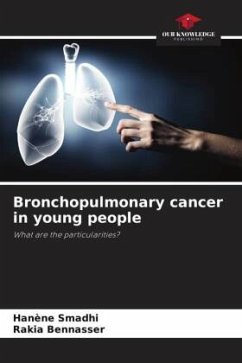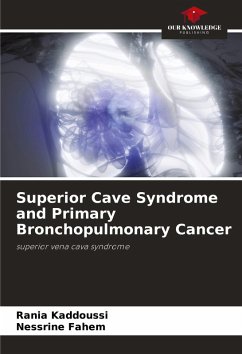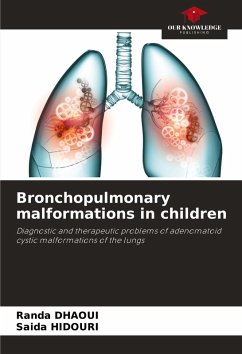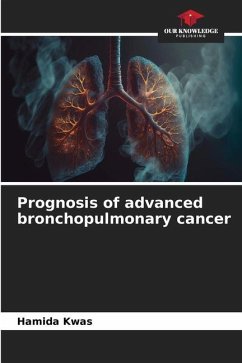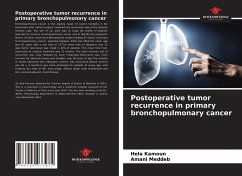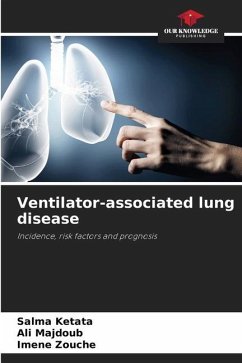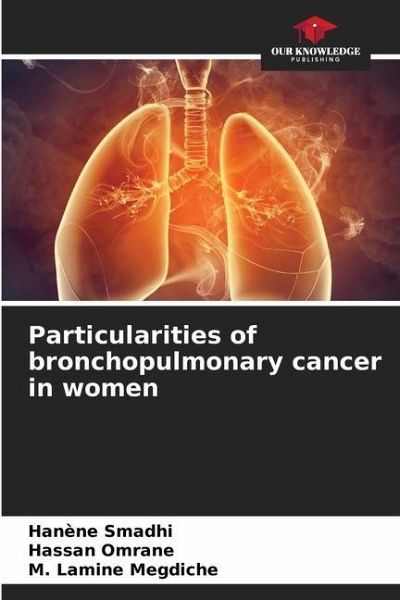
Particularities of bronchopulmonary cancer in women
Versandkostenfrei!
Versandfertig in 6-10 Tagen
24,99 €
inkl. MwSt.

PAYBACK Punkte
12 °P sammeln!
Primary bronchopulmonary cancer (PBC) is a worldwide scourge. It is one of the main causes of cancer mortality in both men and women. Its incidence in women is clearly increasing in parallel with the increase in smoking, which is the main risk factor. However, the low proportion of women who smoke underlines the contribution of other factors including a stronger genetic susceptibility, hormonal factors, passive smoking, exposure to domestic fumes (coal, cooking oil ...). Thus, in view of the poor prognosis of PBC and the absence of effective means of early detection, the prevention of PBC must...
Primary bronchopulmonary cancer (PBC) is a worldwide scourge. It is one of the main causes of cancer mortality in both men and women. Its incidence in women is clearly increasing in parallel with the increase in smoking, which is the main risk factor. However, the low proportion of women who smoke underlines the contribution of other factors including a stronger genetic susceptibility, hormonal factors, passive smoking, exposure to domestic fumes (coal, cooking oil ...). Thus, in view of the poor prognosis of PBC and the absence of effective means of early detection, the prevention of PBC must be a public health priority by insisting on the fight against its risk factors, in particular the fight against smoking. A better understanding of the mechanisms of action and the relative importance of each factor in determining risk could open up new therapeutic perspectives including new targeted therapies and immunotherapy to improve prognosis.



